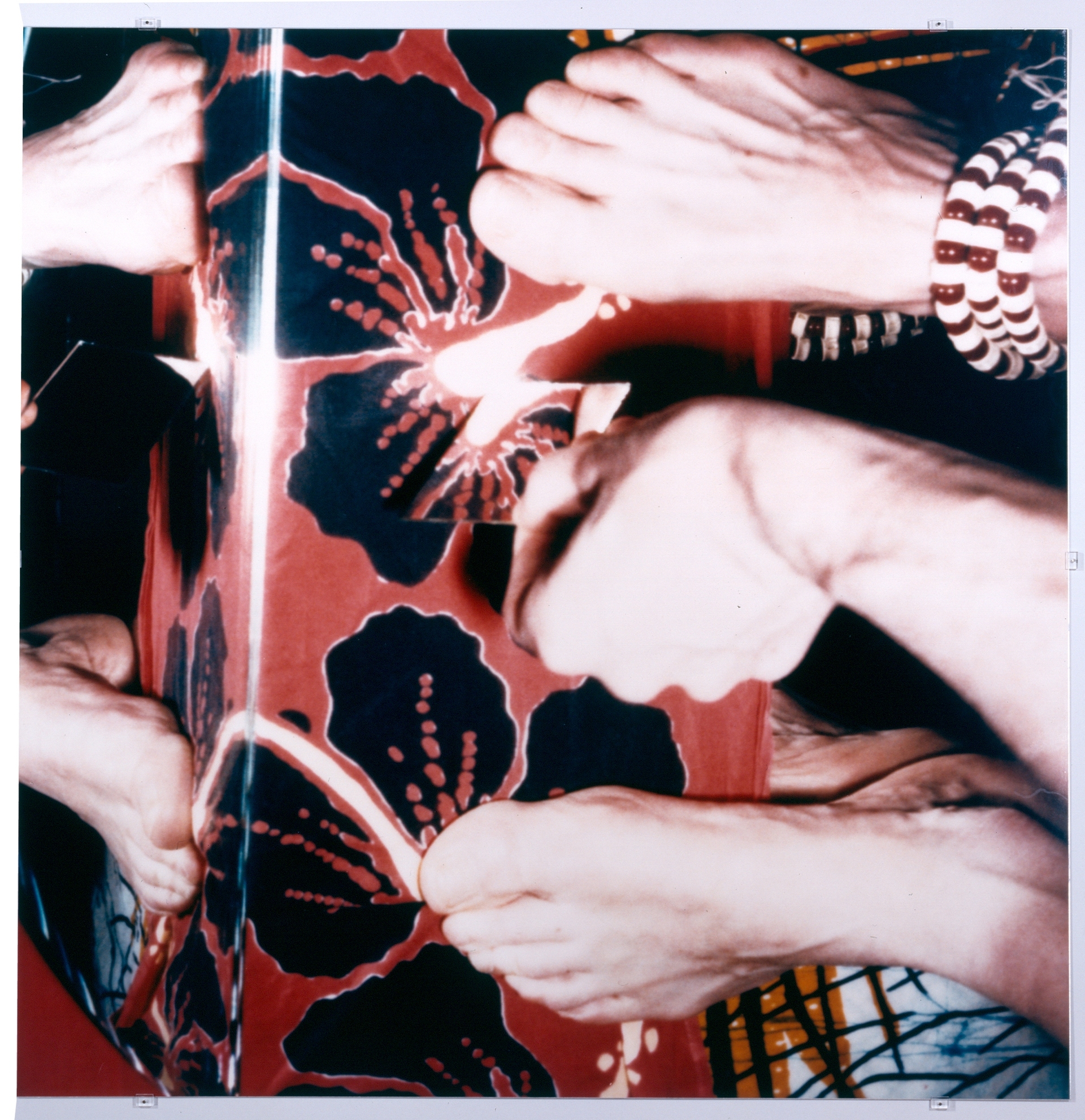Focus: Hannah Villiger
Hannah Villiger described herself as a sculptor throughout her life, and until the late ’70s she produced 3-dimensional works. In 1980, she began to concentrate almost exclusively on the medium of photography. She repeatedly photographed herself, her Polaroid camera sometimes very close, groping along her naked body, and sometimes only as far away as her outstretched arm would allow. This generated fragmentary image details of single body parts or parts folded into each other, which were turned, reflected, enlarged many times, and mounted on aluminum sheets as color photographs. Overexposure, blurring of focus, and extreme light/dark or color contrast often gave rise to a high degree of abstraction, as did the act of turning individual photographs and arranging them side by side or in a multi-part block. Motifs of unusual pictorial perspectives come abruptly into contact, which in their interplay possess a weightlessness consistent with the idea of an image of the self. Photographs of her entire body or face are consciously avoided, so that freed from any concrete narrative contexts or imposed societal constraints, an atmosphere can be created between intimate observation and objective documentation.
In the exhibition, nearly all the photographic holdings of the Öffentliche Kunstsammlung, the Emanuel Hoffmann Foundation, the Kunstkredit Basel, and the Kunstverein Basel are shown, as well as several works from her estate.
We are very glad to be able to present Hannah Villiger, one of the most significant Swiss women artists, who died much too early in 1997 at the age of only 45. She studied at the School of Design in Luzern and settled in Basel in 1977, where she gained critical attention with spectacular exhibitions such as Neid (Kunsthalle Basel, 1985) and Skulptural (Museum für Gegenwartskunst, 1988/89). She secured international recognition for her contribution to the São Paolo Biennale of 1994 (together with Pipilotti Rist). In the years following her death, institutions including the Kunsthalle Basel, the Kunstmuseum Bonn, the NGBK in Berlin, and last year the Musée d’art modern et contemporain in Geneva dedicated comprehensive presentations to her singular body of work.

